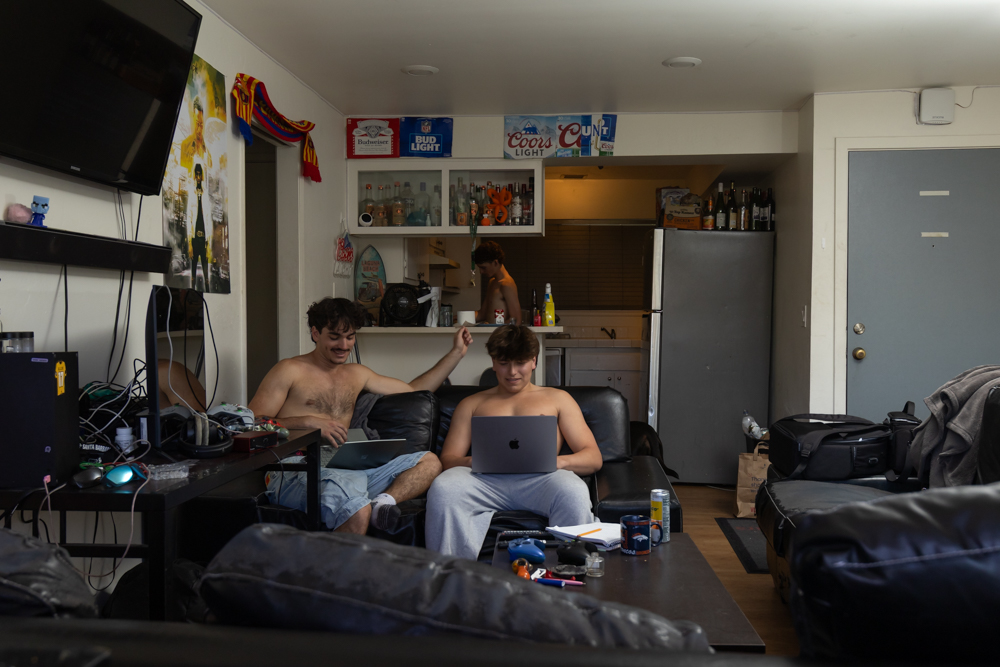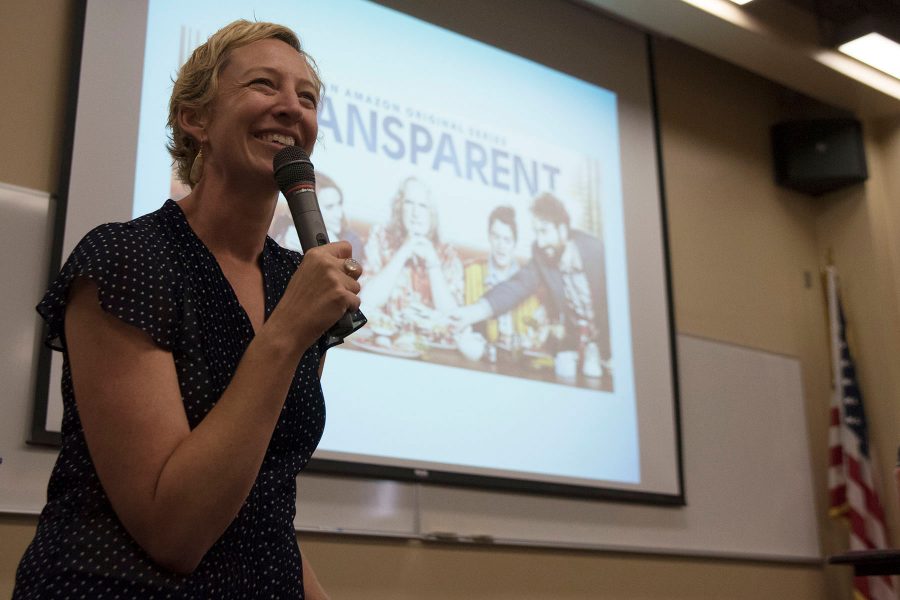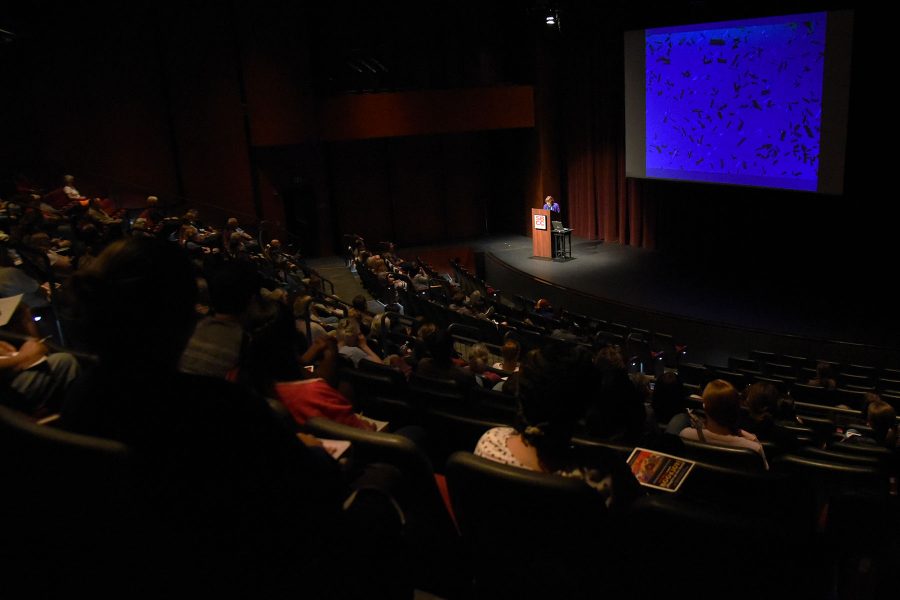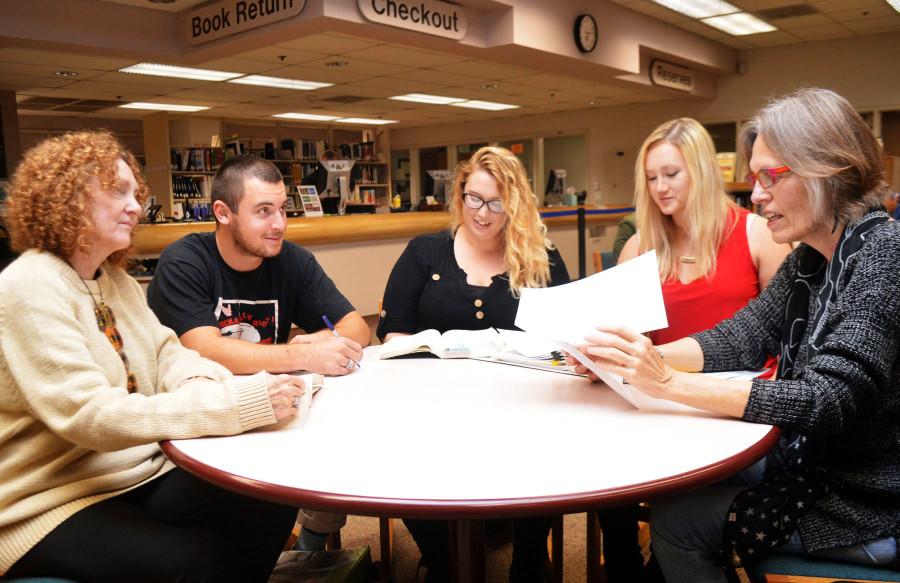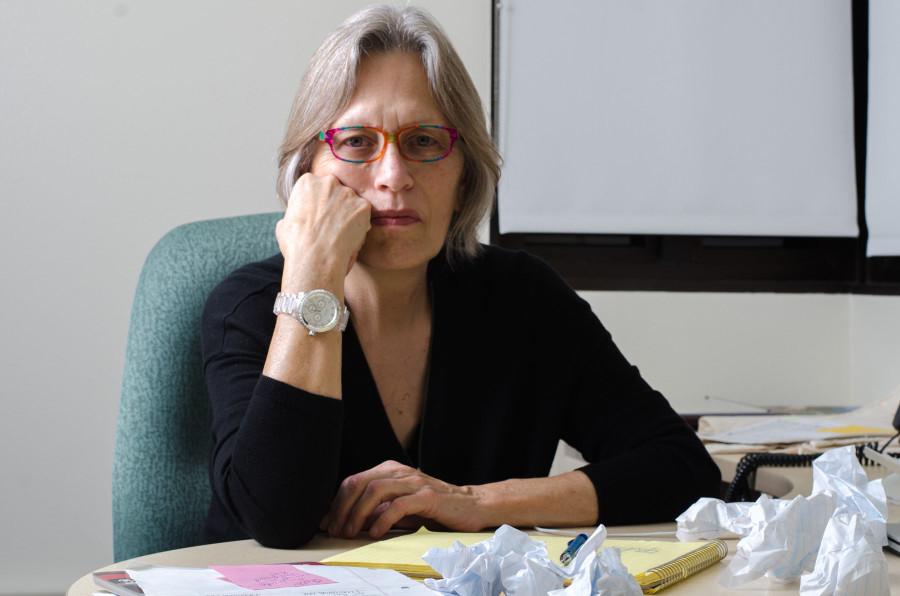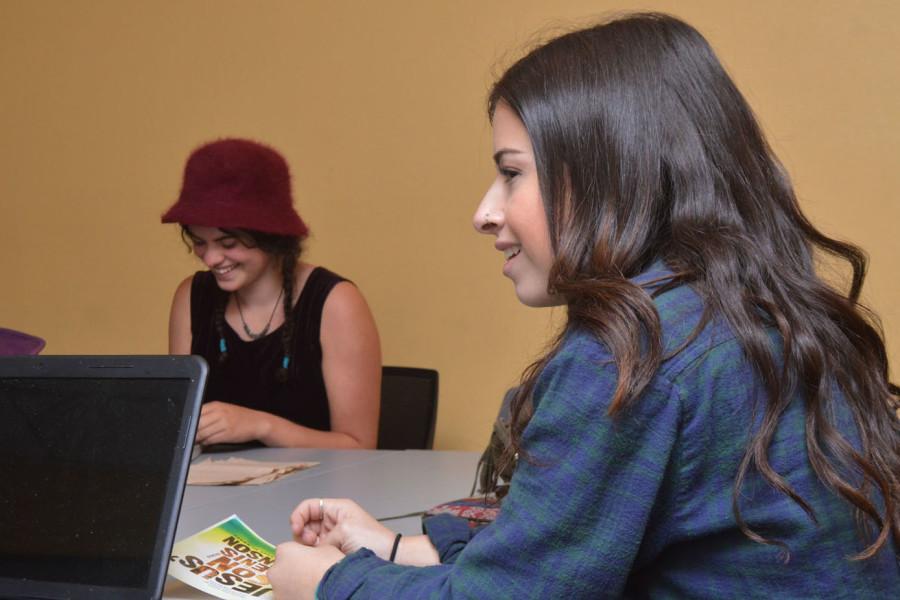Bob Dylan lyrics blare on an old phonograph. Volumes of literature in German and English line the bookcases. Screenplays in Icelandic interspersed with Hollywood movies line the top shelves. The private library of Ingmar Bergman? No, it’s the “record room” for a new professor at City College, Dr. Melissa Menendez, of the English Department.
“I love all kinds of literature,” she says. “One of my favorite quotes is by Ginsberg: ‘America, I’m sick of your insane demands,’ she recites, and then adds, “Too many demands for economic success. Being happy with your work and life is where it’s at.”
The Chicana professor is very popular, especially as an ethnic minority in a predominantly white/Anglo discipline. She brings her enthusiasm for ’60s culture, a variety of literature, and all kinds of popular culture such as films and books to the classroom. But foremost, she brings awareness of Mexican-Americans’ ways of life.
Recent studies show a trend for students to think professors of color are not bright, or broadly educated, but her students have received her zest for egalitarianism with great enthusiasm.
“She encourages autonomy and creativity,” said one of her students, Chris Caci. “Like my essays that I turn in are not very academic. She addresses what I write based on its own merits, not by how much I follow the mold.”
This stereotyping of Mexicans is particularly important, Menendez notes, with respect to the anti-Mexican hysteria being stirred up by some factions in the U.S. today.
“Around 1900, it was the stereotype of the lazy, macho Mexican man and the oversexualized Mexican woman,” she said. “Today it’s the illegal alien Mexican who comes around spreading disease.”
She points to how Arizona’s House Bill 1040 has made Mexican students uneasy to disclose about themselves in class, according to what they tell her in confidence. She finds herself stereotyped also, by students asking “what part of Mexico she is from,” and turns to her records for comfort.
Although Dr. Menendez is Mexican-American, she has never lived in Mexico. She grew up in Fresno, and like most local students went to the university there, living at home and working part-time.
She met her Icelandic husband while they were undergraduates in Fresno, and now works on screenplays with him for Hollywood movies. They enjoy taking their daughter on cultural outings, and they both love her ’60s record collection, which she inherited from her uncle.
The breadth of her record collection, including classical and blues as well as rock, epitomize the conflict she has in reconciling her own broad views with students’ narrower concerns. Her record collection is wide-ranging, but people’s attitudes are not.
She remembers when she was an undergraduate herself and was an exchange student in Germany.
“When I was an au pair on a pig farm in Greven,” she said. “I was always aware of how much the Germans knew about what was going on. We discussed it at dinner every night. Americans are less concerned with what’s going on; they don’t know about it and don’t care. I try to get my students to see how politics and culture are connected in literature, and to care.”
Dr. Menendez says the 1960s counterculture with its linking of politics and culture has informed her life and work. But she does not characterize herself as a love-bead hippie. Standing five feet four in her black sandals, her small frame in a white peasant blouse and batik cotton skirt, she smiles at students and organizes them into small groups to talk about the colonial whites’ view of Indians.
“How much has it changed over 500 years?” she asks, in her low soprano voice. “How much equality is there?”
A colleague of hers, Dr. Melanie Eckford-Prossor, agrees: “She is interested in locating ways to help people who are quieter and silenced, to find a structure in which they can find their voice. She really has an openness to making things better.”



![Milton Alejandro Lopez Plascencia holds a flag showcasing the United States and Mexico on Feb. 7 in Santa Barbara, Calif. “It’s heartbreaking to see what is happening all across the country,” Lopez Plascencia said. “I [want] my voice to be heard by the community.”](https://www.thechannels.org/wp-content/uploads/2025/05/MGSImmigration-1-1200x800.jpg)


![The new Dean of Social Science, Fine Arts, Humanities and English, Eric Hoffman beams on May 2 in Santa Barbara, Calif. "My major professor in college [inspired] me," Hoffman said. "You can really have a positive impact on people's lives in education."](https://www.thechannels.org/wp-content/uploads/2025/05/MGSHoffman-2-1200x800.jpg)
